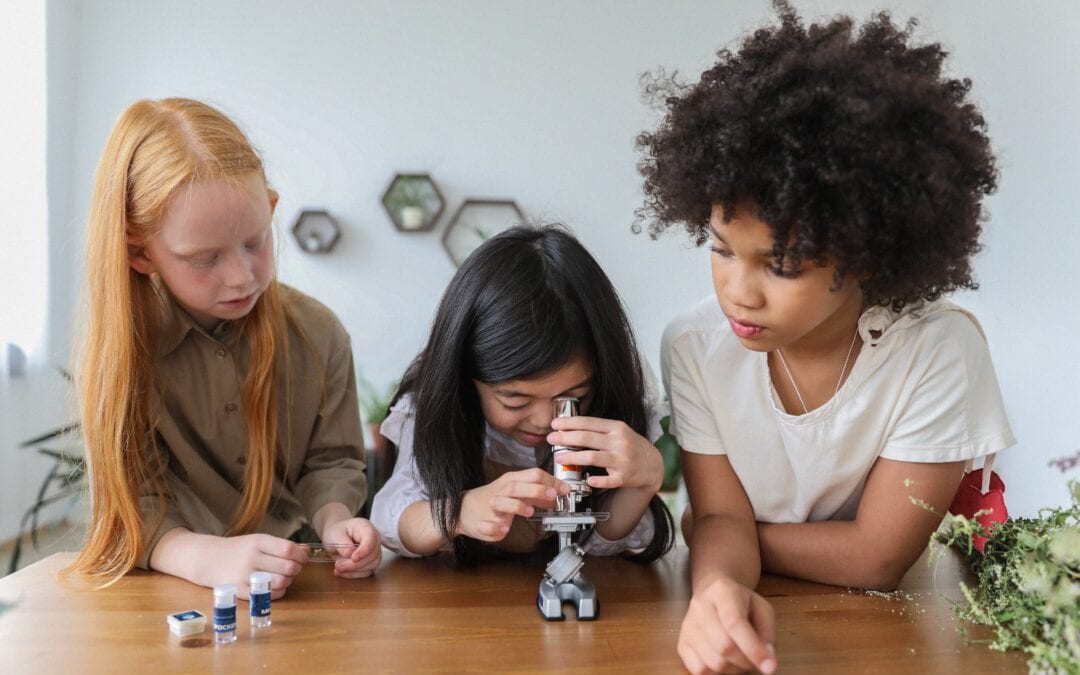Some of the most important aspects of education are not just academic. Children’s abilities to socially and emotionally navigate the world around them are building blocks to becoming productive, successful, and happy adults.
That is why at STEMful, we prioritize social-emotional learning in all of our programs. And today, we are sharing five reasons social-emotional learning activities are more important than ever.
What is Social-Emotional Learning?
Social-emotional learning, also referred to as SEL, is an approach where children and adults develop self-awareness, emotional regulation, and interpersonal skills that prepare them for success in work, school, and life. With SEL, children learn important tools that address a variety of inequities in life. SEL empowers them to contribute to the safety and health of their communities.
The SEL core competencies, or CASEL 5, can be taught from preschool through high school to help children develop important skills for their academic, professional, and overall success. The CASEL 5 are self-awareness, self-management, social awareness, relationship skills, and responsible decision-making. At STEMful, we incorporate the CASEL 5 into our curriculums across all of our programs.
How We Teach Social-Emotional Learning at STEMful
It is incredibly important to us that all of our STEMful staff understand social-emotional learning and weave it into all aspects of what we do.
Twice a year (at the beginning of the school year and at the start of our summer programs) we provide our staff SEL training. All of our monthly team meetings and one-on-ones emphasize the importance of SEL as well. For us, social-emotional learning activities are a foundation for how we teach.
We teach SEL concepts using the four elements of an effective SEL program:
- Sequence: connected and coordinated sets of activities to foster skills development
- Active: active forms of learning to help students master new skills
- Focus: emphasis on developing personal and social skills
- Explicit: targeting specific social and emotional skills
We end every SEL activity with a circle time to share an appreciation, apology, or an “aha!” (realization), which helps our students recognize what they have learned through the experience.
Why Social-Emotional Learning Activities Are More Important Than Ever
We are living in a unique time filled with plenty of challenges and opportunities for our local and global communities to learn and grow. It has never been as important as it is now for children of all ages to have experiences and gain skills that will help them become confident, responsible, and socially conscious adults. At STEMful, we are striving to create those learning experiences in a structured environment.
In recent years, researchers have examined the short-term and long-term effects and benefits of social-emotional learning activities for students. Their findings show that SEL should continue to be a priority for educators and families alike.
5 Reasons For Why We Believe SEL Is More Important Than Ever:
SEL Helps Children Understand and Relate to Others
The ability to understand and relate to others is an incredibly valuable skill for anyone at any stage of life. It is especially crucial for children to develop a genuine interest in learning how others feel, what they think, and why their thoughts and feelings are valid. This is especially true when children notice differences between their own emotions and perspectives and those of others.
Developing the ability to empathize with others and relate to their perspectives helps children and young adults build positive social connections as well as professional relationships in their future.
Social-Emotional Learning Activities Reduce Emotional Distress
A heartbreaking result of the COVID-19 pandemic is its effect on emotional and mental health in children. Between April 2020 and April 2021, about half of surveyed parents reported seeking help from medical professionals for their children’s mental health. Additionally, 44% of the parents said their children ages 2-11 had more symptoms of emotional or behavioral distress than ever before.
Social-emotional learning activities are crucial to reducing emotional distress for children (and adults!) during these unprecedented times and during “normal” life as well. Research shows that 24% of children experience lower levels of distress with SEL. Being able to understand and regulate their emotions is something that will always be important to children. Even when they grow into adults, emotional regulation is still a crucial life skill to master.
SEL Improves Academic Performance
While academic performance is not the only measure of growth and development, it is a crucial marker for students throughout their school years. With SEL programming, 27% of students can expect to improve their academic performance by the end of a program.
When students are socially and emotionally competent, the likelihood of them graduating high school and being prepared for postsecondary education improves. Social-emotional learning activities improve students’ attitudes toward school, which has a direct correlation to their classroom performance–an 11 percentage-point gain in academic achievement, to be exact.
Children Behave Better with SEL
Learning how to recognize, acknowledge, and communicate their anger or frustration is no simple feat for children. SEL helps them develop those skills and express themselves appropriately.
The impact of SEL on students stretches far past their school years. Studies have shown that SEL students see 10% fewer psychological, behavioral, or substance abuse problems by the time they’re 25 years old.
SEL Supports Responsible Decision-Making
What parent doesn’t want their children to learn how to make responsible decisions? There are countless situations in life where making the responsible decision can be the difference between struggles and difficulty, and productivity and success. More important, though, is the value of responsible decision-making when it comes to how children’s actions affect others’ health and safety.
SEL programming teaches children the importance of making decisions that promote collective well-being, making their choices less focused on themselves and more so on their community as a whole.
Conclusion
Growing up in an ever-changing world, children need all the tools we can provide to help them become confident and capable adults. SEL gives children valuable skills they need to succeed at school and in life! And at STEMful, we prioritize SEL in our curriculums and ways of teaching so we can facilitate some of their most important learning experiences.
Be sure to check out STEMful’s Afterschool Curiosity Club and outdoor Afterschool Curiosity Explorers programs! Children ages 5-10 join us for project-based structured activities and open-ended play-based exploration, guided by SEL principles, where they learn and grow in every way!

